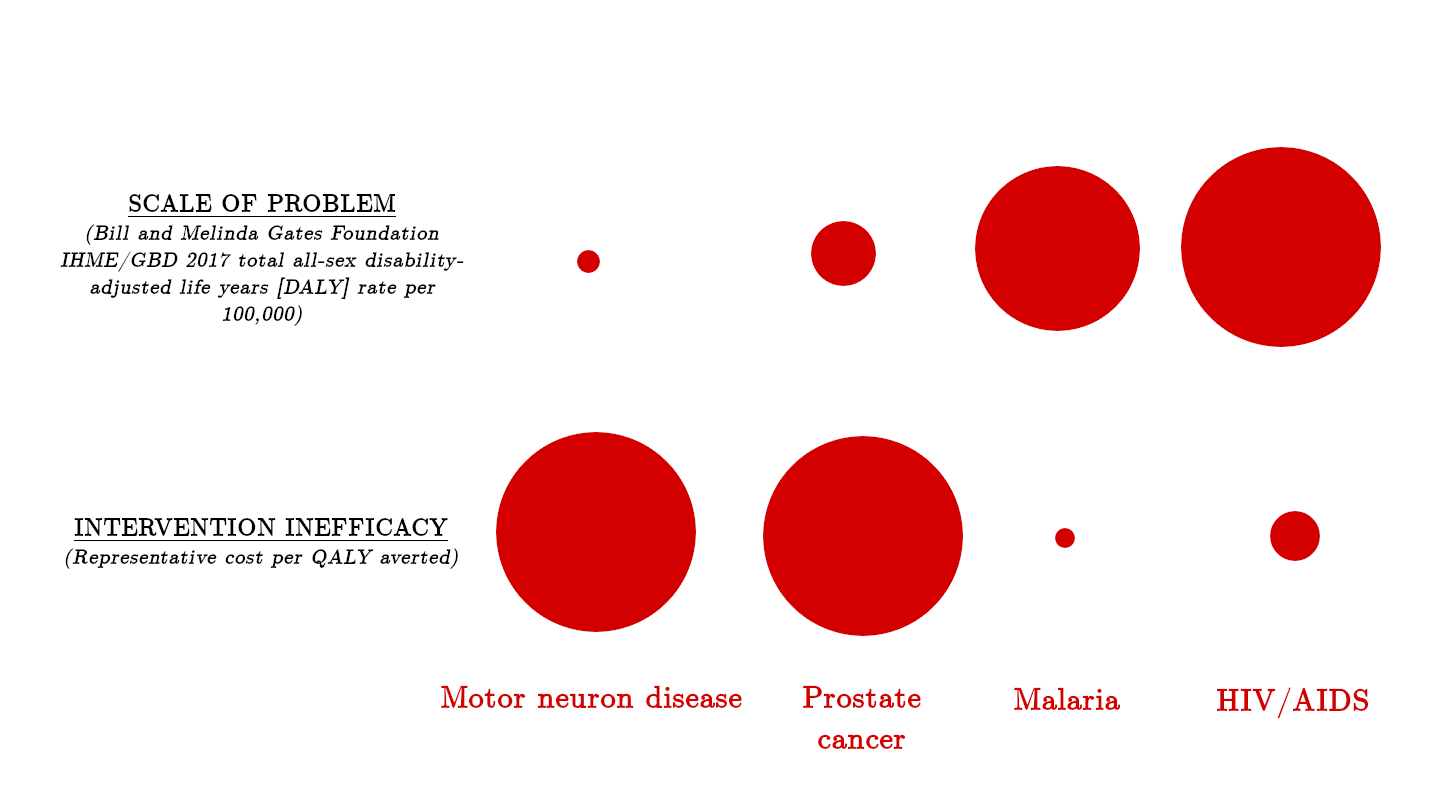
|
Multipotentialmike |
 About and contact
About and contact
|

Most people, especially those who are more fortunate than others, will consider how to benefit their fellow people in some way. This is sometimes effected by charitable giving.
That being said, we ought to remain philosophical, self-critical and open-minded in the pursuit of this goal. Much philanthropy has the potential to do more harm than good (see, for example, the saviour complexes). If you really care, then it is shrewd to think about these externalities.
The graphic above encapsulates a thought in relation to healthcare spending. On the top is the size of the problem facing the world. I've chosen the DALY rate as the metric. On the bottom is the cost per QALY (similar to the DALY) averted - that is, the cost-effectiveness of interventions. Healthcare spending regulators will use this to determine whether or not an intervention is good enough to be publicly funded. In the UK, for instance, NICE uses a threshold of around £20,000-£30,000 per QALY.
You will see that there are some problems which are perhaps very complex to remedy, affect a small number of people and are expensive, and there are some which are huge, yet very simple to treat. A dichotomy frequently presented in Effective Altruism circles is that of the malaria net (which is very cheap, and saves many lives) against monoclonal antibodies which have huge R&D costs, and offer only a few months of extra, low-quality life to those who are understandably afraid to die but might benefit more from a caring emotional environment.
It makes a lot of economic sense to pursue the most value in philanthropy, with all the vigour of a venture capitalist. If only a certain percentage of the world's disposable income is spent on charity in any given time period, then the economy on which this giving is supported is raised fastest if it is directed to the best causes. This allows a greater charity to be given in future to more recalcitrant problems. In short, start with the low-lying fruit.
With that being said, there are those who give to causes which touch them closely, or which are supported by a network of close friends and family, and may not want to give to a cause selected by cold mathematical rigour. In this case, this is better than nothing.
For a full elucidation of these concepts, see the Effective Altruism and 80,000 Hours projects, the GiveWell project, and an exploration of them in The Economist here.
See also
 |  |

